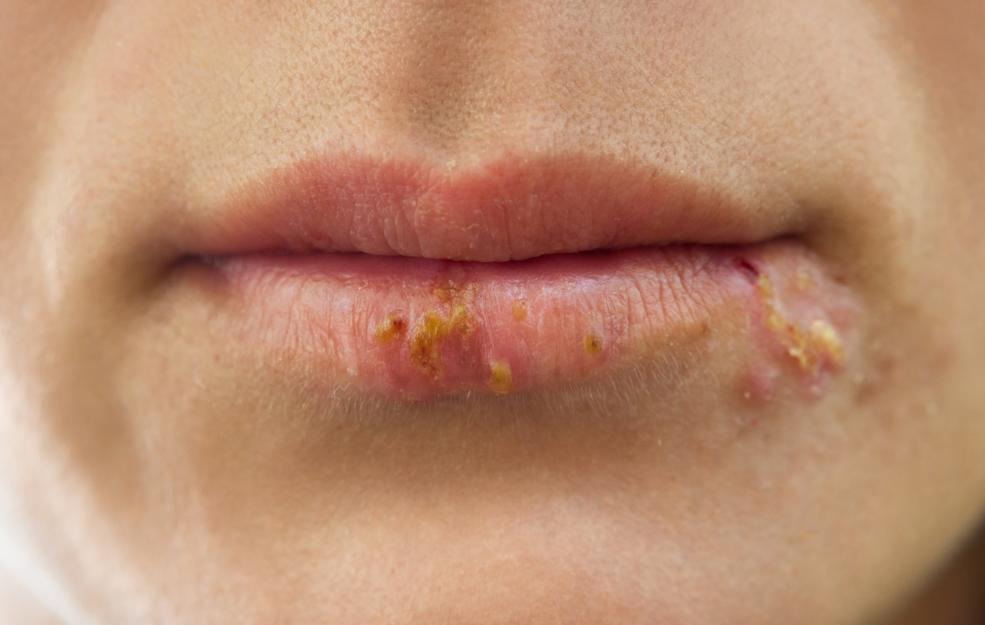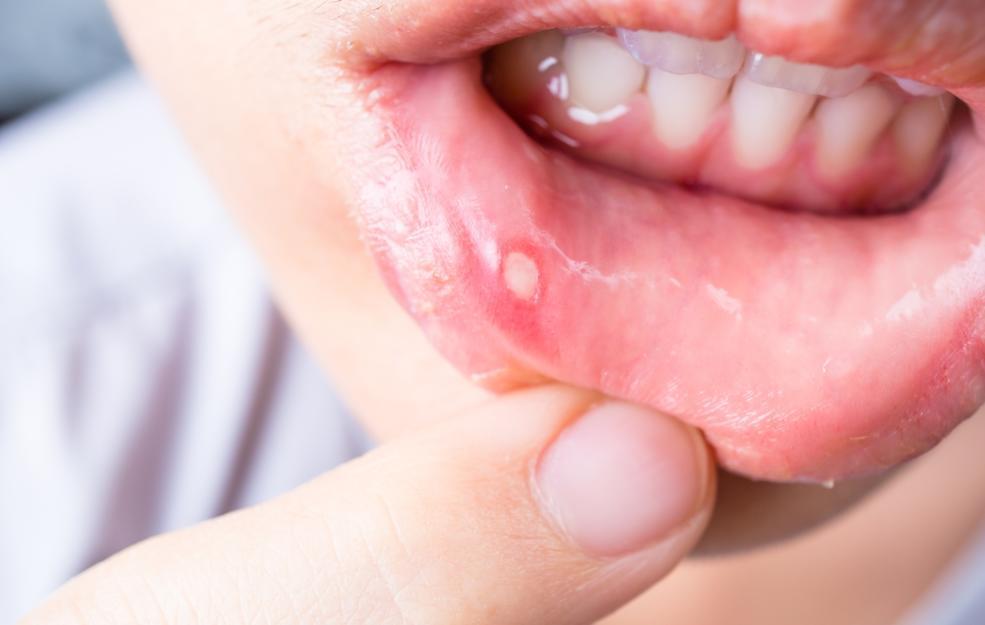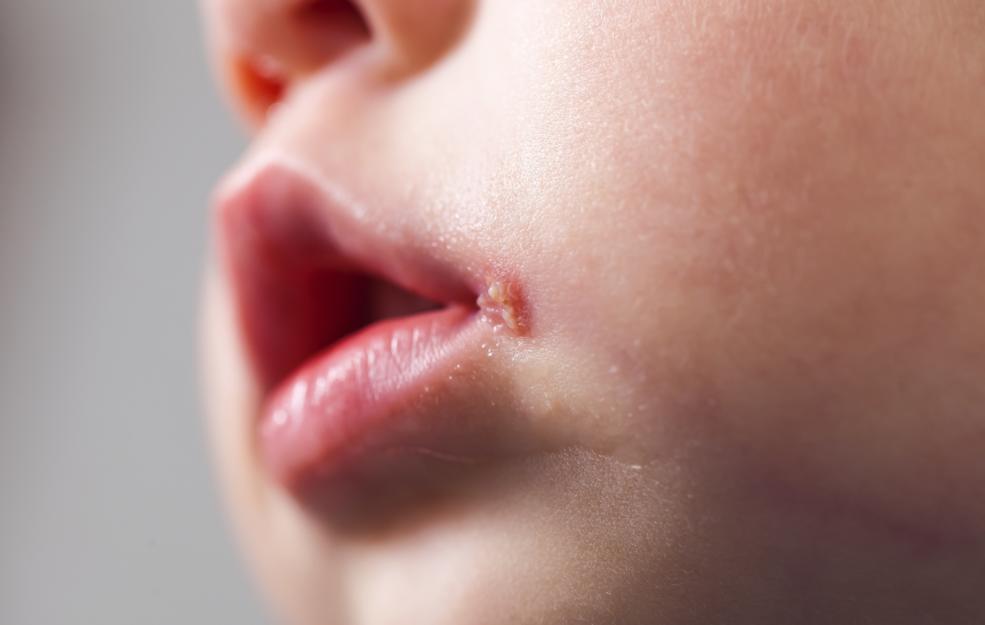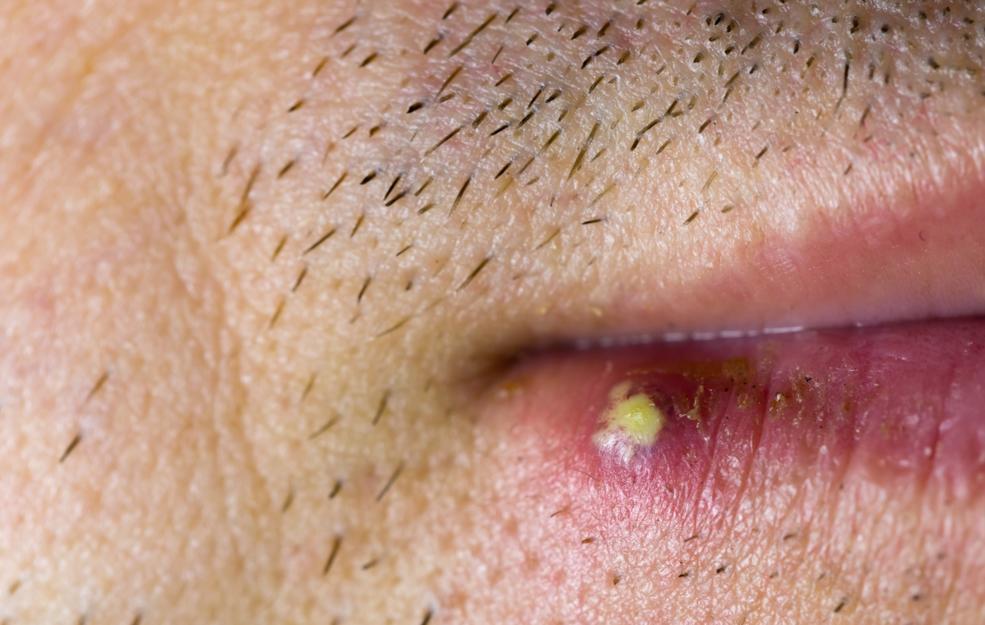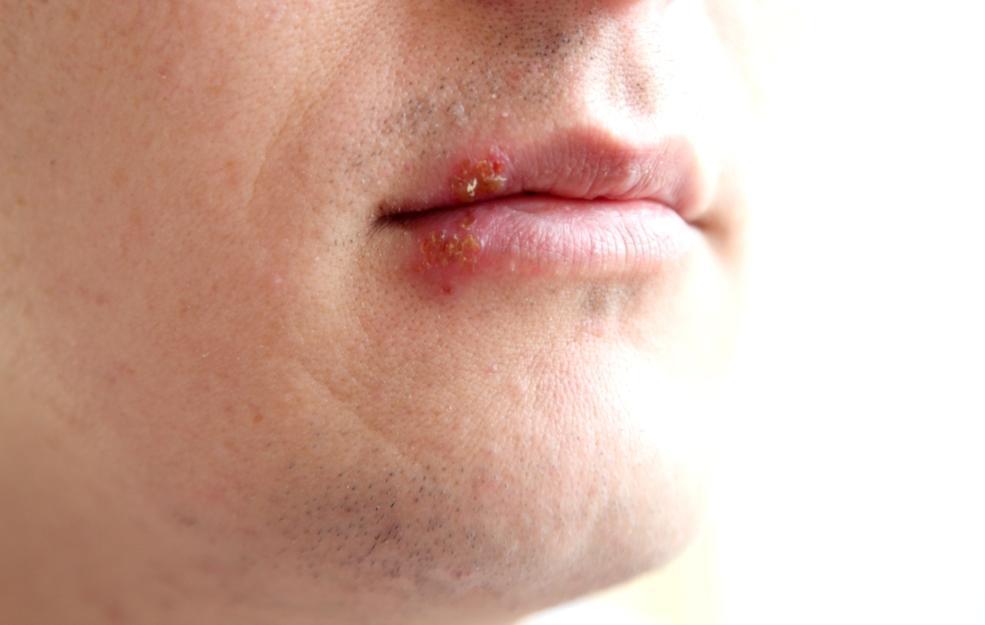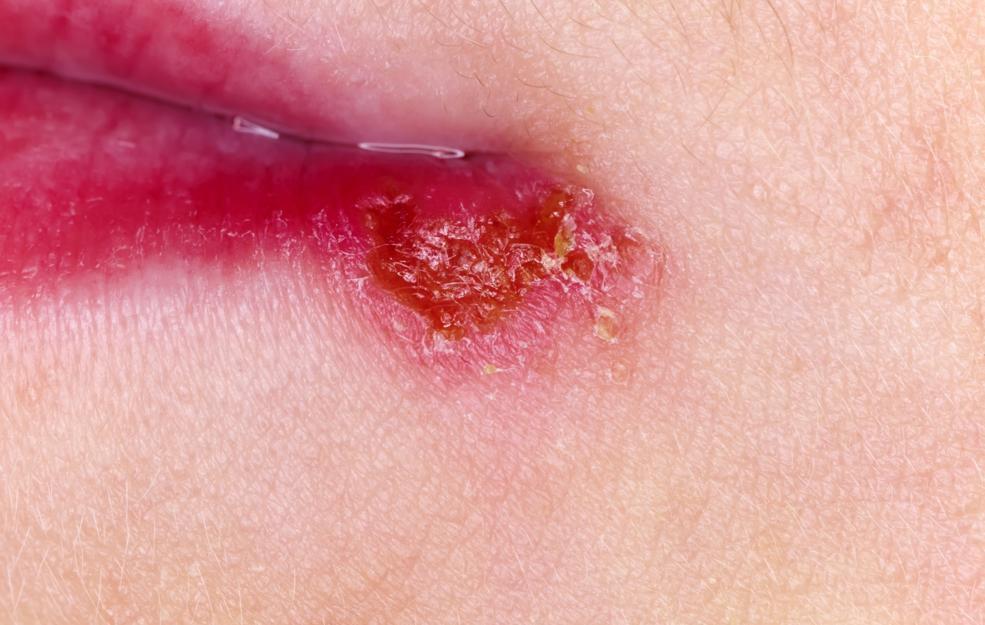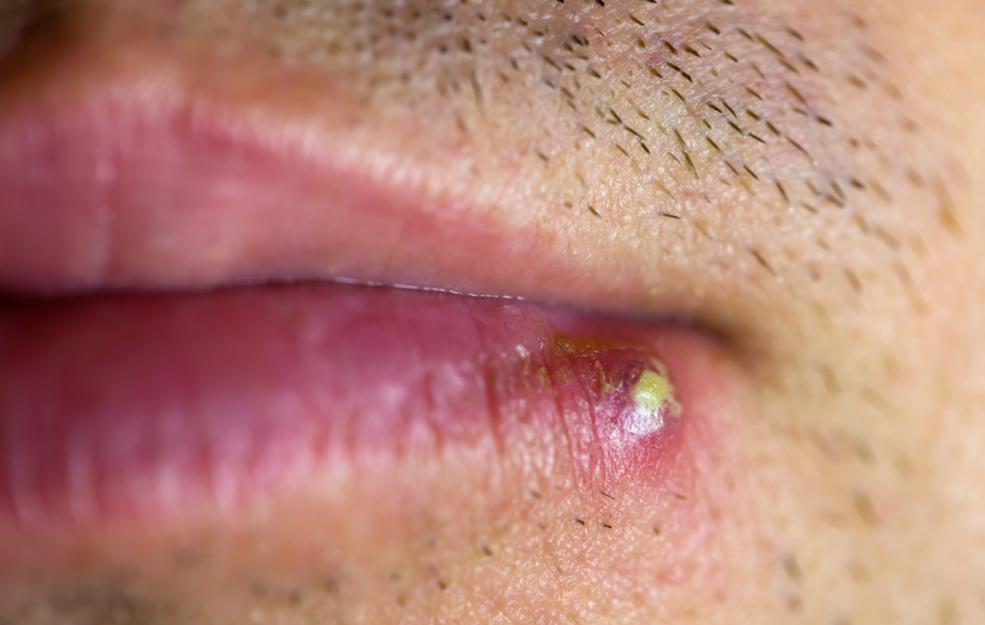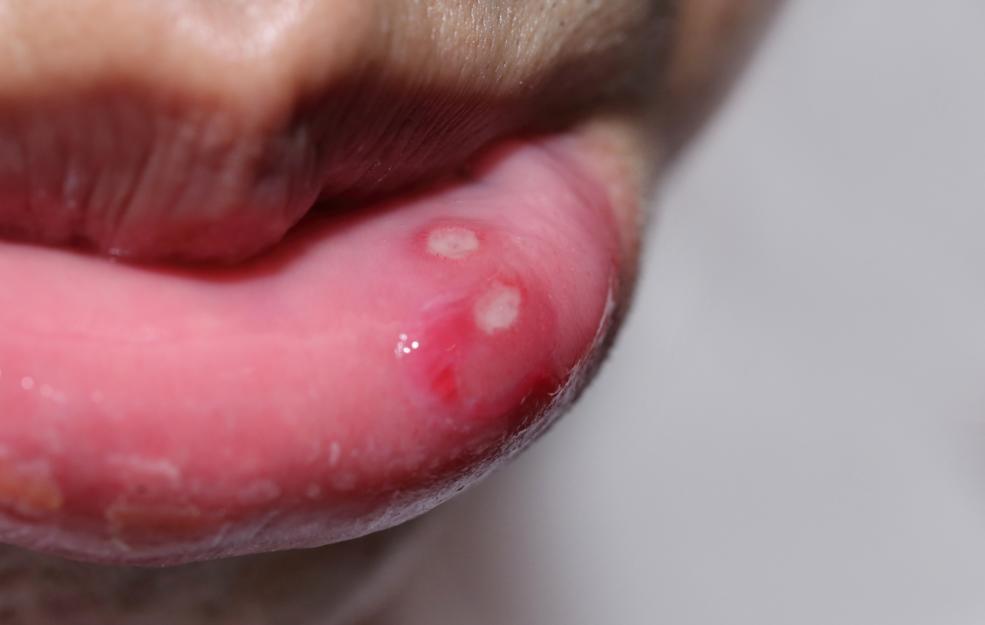How Contagious Are Cold Sores?
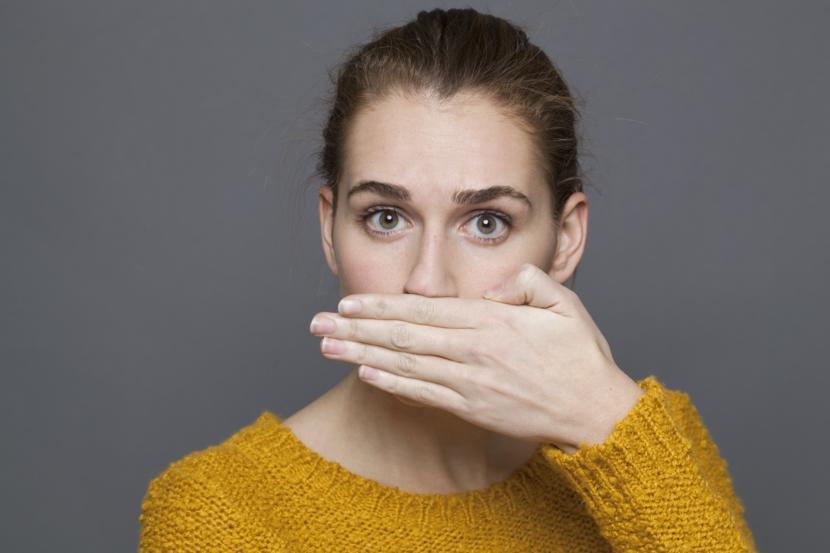
A cold sore is an infection caused by the herpes simplex virus or HSV. The type of HSV that causes cold sores is the HSV-1. It is a very common condition that affects people before their twenties. Many Americans are infected by the HSV-1 by the time they are 20 years old. Cold sores can be painful and unsightly. Moreover, cold sores are very contagious.
Also called as "fever blisters", cold sores are groups of small blisters around the mouth or lips. Around these blisters, the skin is always red, swollen, and very sore. These blisters usually heal after several days or up to two weeks. However, be careful of the blisters since they can break open and leak a clear fluid, which then scabs in a few days.
Cold Sore Contagion
Cold sores can easily spread as they are very contagious. Ten percent of people infected with the herpes simplex virus type 1 will most likely develop cold sores within one to two weeks.
Cold sores are most contagious when they have ruptured, and the fluid inside the blisters seeps out. However, cold sores are already contagious from the time the first symptom of the cold sore is felt. The first symptom is usually tingling or itching around the area of the mouth. It will stay to be contagious until the sores are completely healed and gone. Even if the sore has already scabbed over, it doesn't mean that the cold sore has healed and no longer contagious.
Once the person is infected with cold sores, the virus enters the person’s nerve cells and travels up the nerves until it comes to a place also called as "ganglion". A ganglion is a collection of nerve cells. The virus quietly resides in the nerve cells in this stage. This stage is also known as the "dormant" or "latent stage". In the active stages, the virus starts to multiply and then travels down the nerves of the skin, where it again causes blisters known as cold sores. Some of the conditions such as fever, immune system response, exposure to harmful ultraviolet rays, emotional or physical stress, changes in menstrual cycle, and hormonal changes are said to be associated with the recurrence of cold sores. The exact time when it reoccurs is unpredictable. However, it can happen often such as once a month or at times very rare, which is once or twice a year.
What are the causes of cold sores?
Cold sores or fever blisters are usually caused by the herpes simplex virus (HSV). HSV is further divided into two types: HSV-1 and HSV–2. When a person touches a cold sore or its infected fluid, which happens due to eating, sharing utensils, kissing an infected person, or coming in contact with the infected person’s saliva, the virus enters the body leading to cold sores.
What are the symptoms of cold sores?
The initial symptoms of cold sores would be pain around your mouth or lips. It is then followed by fever and swollen glands at certain parts of your body. Cold sores usually break open and leak a clear fluid after the blisters appear. These then crust over and disappear after several days or for a week. Some people may not experience any pain, but for a few people, they find it very painful. In cases where the cold sores recur, the life of the blister is very short. The blisters dry up and leave scabs that last from a day to several days. It also depends on the severity of the condition.
How are cold sores diagnosed?
No laboratory tests are required to determine cold sores since they are based on the appearance of the lesions. At times, cold sores would be mistaken for "canker sores". However, canker sores appear inside the mouth while cold sores usually occur outside the mouth, particularly on the lips. If the doctor decides to go for laboratory tests, which would be a rare case, a variety of tests are available. A swab is rubbed over an active blister. Thus, the test should be done 24 to 48 hours before the blister has crusted over.
Often, blood tests are unnecessary for antibodies because finding the antibodies against the herpes virus means that the body has been exposed to the virus at some point in the past.
Seeking Medical Help
When a person gets cold sores for the first time, the symptoms that show up can be very severe and may also last for several days. In most cases, people acquire the viral infection during childhood. Depending on the severity of the condition, one should consult a doctor. The doctor would prescribe certain medications that will shorten the period of infection. These medications are usually effective if they are taken early. The person may also experience a difficulty in eating or drinking due to the sores leading to dehydration. Hence, urgent medical attention is required.
Recurrent cold sores do not need medical attention since they resolve on their own after a couple of days. People who are undergoing chemotherapy or those people with an impaired immune system may have multiple outbreaks of cold sores. For these people, urgent medical attention would be required to avoid any complications from happening.
How to avoid the spread of cold sores?
Here are some ways you can do to avoid the spread of cold sores to other people:
- Don’t share – Anything that you put inside your mouth must not be shared. The virus can easily be passed on if you share foods, drinking straws, utensils, glasses, and cups. The same thing goes for lipstick or lip balms, razors, and toothbrushes. Personal things like towels should not also be shared as these can be harbingers of the virus. Remember, the virus can stay and survive for a period of time on these things.
- Avoid close contact – Getting close or personal with your family or friends can spread the virus. Avoid kissing and direct contact as long as the cold sores are not completely healed and gone.
- Don’t touch – It can be tempting to touch the sores, but it is a must to avoid touching them. Every time you touch the sore with your hands, it gives more chances of spreading the virus. Touching the sores and not washing your hands right away will spread the virus to whatever object you will touch next. Always wash your hands if you’ve touched your sores. If a sink is not available, always bring rubbing alcohol or hand sanitizer to immediately disinfect your hands.
- Use hot water – Using hot water to wash the items you have used can help kill the virus.
- Do not engage in oral sex – When you have cold sores, coming in contact with your partner’s genitals can spread the virus in the genital area. The virus that caused your cold sores can also be responsible for the sores and blisters in the genital area.
- Avoid the factors that can trigger your sores – This is probably one of the best ways to stop the spread of cold sores. Sunburn, stress, illnesses, and fever can trigger an outbreak. Apply sunscreen before exposing yourself to the sun. Applying a lip balm can help your lips from getting dry. Manage your stress and learn relaxation techniques as well.
- Cold sore treatment – Yes, cold sores can fade away even without treatment. However, it will take more than a week for the sores to heal. There are available cold sore treatments that can speed up the healing process. Acyclovir is an antiviral medication that can shorten the duration of your cold sores. As much as possible, use a cotton swab when applying a topical agent on your sores. Doing so prevents the spread of the virus to other areas of the body.
Medical Treatment for Cold Sores
There are several medications that can help reduce the duration of cold sore symptoms. A few medications are available over-the-counter while some can be obtained with a doctor’s prescription. Some of the medicines would be in the form of pills and are orally taken, while some can be directly applied to the skin blisters in the form of creams or ointments.
1) Over-the-counter Medications
Most OTC products only provide a temporary relief. They make the person feel better. However, the time it takes for the cold sores to heal is the same. For pain relief, one can use ibuprofen and acetaminophen. Steroids such as hydrocortisone should not be applied to the lesion.
When docosanol cream is first applied, it shows signs of a decreased healing time. It should be applied five times daily until the lesions are completely healed. However, it comes with side effects such as itching or rashes at the site of application.
2) Prescription Pills
The pills that are usually prescribed for the treatment of cold sores are valacyclovir and famciclovir. These are oral medications, which have been proven to decrease the duration of a cold sore outbreak, especially when it has just started. People may experience certain side effects from these medications, which can be tolerated. Side effects include nausea, headache, and at times, diarrhea.
Apart from medications, one can opt for the following treatments to heal cold sores:
1) Stress Reduction - Emotional and physical stress can trigger the herpes virus to actively come back from its dormant stage. Having daily exercises, keeping yourself busy doing the activities you love, and meditation are various methods to reduce one's stress levels, which in turn, reduce the recurrence of cold sores.
2) Apply Ice – Ice helps in easing discomforts, pain, and inflammation due to cold sores. However, it only gives temporary relief.
3) Lemon Balm – A lemon balm helps in reducing the healing time of the blisters. It also helps prevent future outbreaks. The balm should at least contain 1 percent of lemon balm extract. Drinking lemon tea is also beneficial.
4) Aloe Vera – It is a widely grown plant across households and is very useful for a variety of skin issues. The application of aloe vera on the lesions can aid in a faster healing.
5) Vitamin E – Eating foods and fruits that are rich in vitamin E is also good to avoid having recurrent cold sores. Vitamin E helps repair damaged skin cells and promotes the growth of new ones. Include nuts, leafy vegetables, and whole wheat in your diet.



